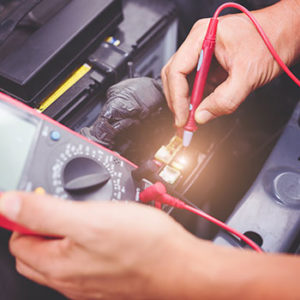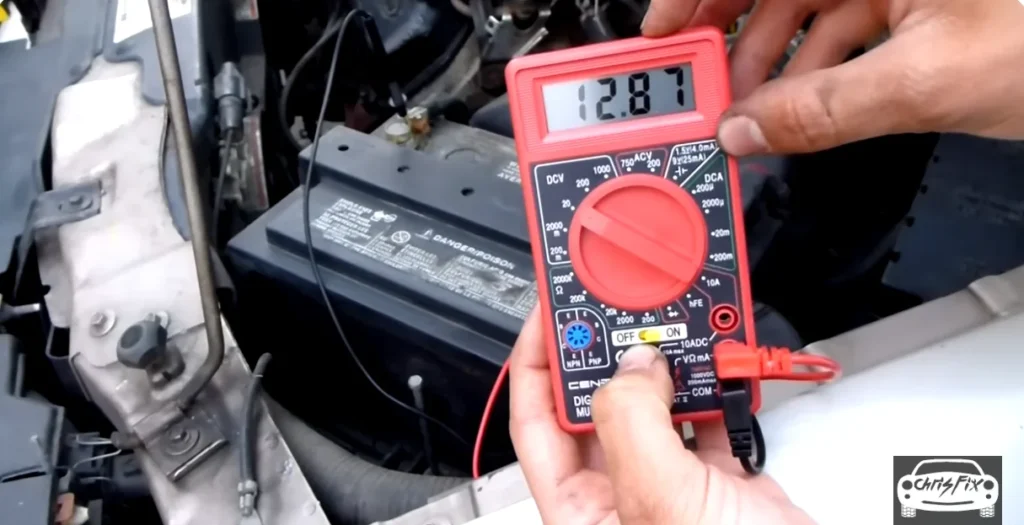Regular car battery health checks prevent unexpected breakdowns and extend battery life. They ensure optimal vehicle performance and safety.
Car battery health checks are crucial for maintaining your vehicle’s reliability and performance. A well-maintained battery ensures your car starts smoothly and avoids inconvenient breakdowns. Regular checks help identify potential issues before they become serious problems, saving you time and money in the long run.
By monitoring your battery’s health, you can also extend its lifespan, reducing the frequency of replacements. This proactive approach not only enhances your vehicle’s efficiency but also contributes to overall safety on the road. Make battery health checks a routine part of your car maintenance to enjoy a trouble-free driving experience.
Introduction To Car Battery Health
A car battery is the heart of your vehicle’s electrical system. It powers everything from the engine to the lights. Regular car battery health checks ensure your car runs smoothly. This section explains why car battery health is important.
Why It Matters
Car battery health is crucial for several reasons:
- Prevents breakdowns: A healthy battery avoids unexpected car stops.
- Extends battery life: Regular checks help prolong your battery’s lifespan.
- Ensures safety: A well-maintained battery reduces the risk of car accidents.
- Saves money: Early detection of issues can save costly repairs.
Common Battery Issues
Several common issues can affect car battery health:
| Issue | Description |
|---|---|
| Corrosion | Rust on battery terminals can hinder performance. |
| Loose connections | Loose cables can cause a weak electrical connection. |
| Old age | Batteries lose efficiency as they age, usually after 3-5 years. |
| Overcharging | Overcharging can damage the battery cells. |
Signs Of A Failing Battery
Regular car battery health checks are essential for every vehicle owner. A failing battery can cause various issues, leaving you stranded unexpectedly. Recognizing the signs of a failing battery can save you from inconvenient breakdowns.
Slow Engine Crank
A common sign of a failing battery is a slow engine crank. If your engine takes longer to start than usual, it could mean your battery is weak. A healthy battery should start your car smoothly. Here’s a simple checklist to monitor:
- Is the engine slow to start?
- Does the engine make a clicking sound?
- Are there any unusual noises?
Dim Lights And Electrical Issues
Another indicator of a failing battery is dim lights and electrical issues. If your headlights appear dimmer than usual, your battery may not be providing enough power. The same applies to other electrical components:
- Interior lights are not as bright.
- Power windows operate slowly.
- Radio and other accessories malfunction.
| Sign | Description |
|---|---|
| Slow Engine Crank | The engine takes longer to start. |
| Dim Lights | Headlights and interior lights are dim. |
| Electrical Issues | Accessories malfunction or operate slowly. |
Pay attention to these signs to keep your car running smoothly. Regular checks ensure your battery stays healthy.
Benefits Of Regular Checks
Regular car battery health checks offer numerous benefits. Ensuring your battery is in good condition can save you time, money, and headaches. Here are some key benefits of regular checks:
Extended Battery Life
Regular checks help extend your car battery’s life. Timely maintenance prevents issues from escalating. This means fewer replacements and more savings.
Identifying problems early can prevent battery drain. Simple steps like cleaning corrosion can make a big difference. Regular checks ensure your battery stays in top shape.
Enhanced Vehicle Reliability
A healthy battery means a reliable vehicle. Regular checks ensure your car starts smoothly every time. No more unexpected breakdowns due to battery failure.
Consistent battery performance boosts your confidence on the road. You can count on your vehicle for daily commutes and long trips. Regular checks guarantee peace of mind.
| Benefit | Description |
|---|---|
| Extended Battery Life | Prevents major issues, saves money, and extends lifespan. |
| Enhanced Vehicle Reliability | Ensures smooth starts and prevents unexpected breakdowns. |

Credit: batteryworld.varta-automotive.com
How To Conduct A Battery Check
Regular car battery checks are crucial for your vehicle’s health. A weak battery can leave you stranded. Performing a simple check can save you time and money. Let’s learn how to conduct a car battery check in two easy steps.
Visual Inspection
Start by checking the battery’s appearance. Look for signs of damage. Is the battery case swollen or cracked? Any signs of leaking? These are red flags.
Check the battery terminals. Are they corroded? Corrosion looks like white or blue powder. Clean the terminals with a mixture of baking soda and water. Use a wire brush for scrubbing.
Ensure all connections are tight. Loose connections can cause starting problems. Make sure cables are not frayed or damaged.
Using A Multimeter
A multimeter helps measure the battery voltage. Set the multimeter to DC voltage. Place the red probe on the battery’s positive terminal. Place the black probe on the negative terminal.
A healthy battery should read between 12.4 and 12.7 volts. If the reading is below 12.4 volts, your battery might need charging. If it’s below 12 volts, consider replacing the battery.
For more accurate results, test the battery after it has rested. This means the car should be off for at least an hour.
Follow these simple steps to ensure your battery is in top shape. Regular checks can prevent unexpected breakdowns and keep your car running smoothly.
Professional Battery Testing
Maintaining your car’s battery health is crucial. Professional battery testing ensures your car runs smoothly. Experts use advanced tools to assess your battery’s condition accurately.
When To Seek Help
Not sure when to get your battery tested? Here are some signs:
- Slow engine crank
- Dim headlights
- Dashboard warning light
- Unusual battery age
If you notice these signs, it’s time for a professional check.
What To Expect
Wondering what happens during a professional battery test? Here’s a breakdown:
- Visual inspection: Technicians look for corrosion or leaks.
- Load test: They measure the battery’s performance under load.
- Voltage test: They check the battery’s voltage levels.
- Conductance test: This test evaluates the battery’s overall health.
These steps ensure your battery is in top shape.
Professional Battery Testing Benefits
| Benefit | Explanation |
|---|---|
| Accurate Diagnosis | Professionals use precise tools for accurate results. |
| Safety Assurance | Experts handle the battery safely, reducing risks. |
| Longevity | Regular checks extend your battery’s lifespan. |
Regular professional battery testing keeps your car running efficiently. Don’t wait for problems to arise. Stay proactive with regular checks.

Credit: adamsautocenter.com
Preventative Maintenance Tips
Regular car battery health checks keep your car running smoothly. These checks help avoid unexpected breakdowns. Learn these easy preventative maintenance tips to keep your battery in top shape.
Cleaning Battery Terminals
Dirty battery terminals can cause many problems. To clean them, follow these steps:
- Turn off the engine.
- Disconnect the battery cables.
- Use a wire brush to scrub the terminals.
- Rinse with a mix of baking soda and water.
- Dry the terminals with a clean cloth.
- Reconnect the battery cables.
Keeping the terminals clean ensures a strong connection. This can improve battery performance.
Avoiding Short Trips
Short trips can harm your car battery. The battery may not get enough time to recharge. To avoid this, consider these tips:
- Combine errands into one trip.
- Drive longer distances occasionally.
- Use a battery maintainer for short trips.
Longer drives help the battery recharge fully. This keeps it healthy and strong.
Choosing The Right Battery
Choosing the right car battery is crucial for your vehicle’s performance. A good battery ensures your car runs smoothly. Regular checks can help you make an informed decision.
Types Of Car Batteries
There are several types of car batteries available:
- Lead-Acid Batteries: These are the most common. They are affordable and reliable.
- AGM Batteries: Absorbent Glass Mat batteries are more durable. They hold a charge longer.
- Lithium-Ion Batteries: These are lightweight and have a long lifespan. They are also more expensive.
Factors To Consider
When choosing a battery, consider these factors:
| Factor | Details |
|---|---|
| Size: | Ensure the battery fits your car’s battery tray. |
| Capacity: | Check the battery’s amp-hour rating. |
| Cold Cranking Amps (CCA): | Higher CCA is better for cold climates. |
| Brand: | Choose a reputable brand for reliability. |
| Warranty: | A longer warranty offers peace of mind. |
Eco-friendly Disposal
Regular car battery health checks are crucial. They ensure your vehicle runs smoothly. They also help the environment. An old car battery can harm nature. Proper disposal is key. Let’s explore eco-friendly disposal methods.
Safe Disposal Methods
Disposing of car batteries safely is important. Car batteries contain harmful chemicals. These chemicals can leak into the ground. This can pollute water and soil. Safe disposal prevents this.
Here are some safe disposal methods:
- Take your old battery to a recycling center.
- Many auto shops accept old batteries.
- Check with your local waste management service.
Each of these methods ensures safe handling. This protects the environment from harm.
Recycling Benefits
Recycling car batteries has many benefits. It helps the environment. It also conserves resources. Here are some benefits of recycling car batteries:
- Reduces harmful waste in landfills.
- It preserves valuable materials like lead and plastic.
- Saves energy needed to produce new batteries.
Recycling also supports the economy. Recycled materials can be used again. This reduces the need for new raw materials. It also creates jobs in the recycling industry.
Regular car battery health checks help you know when to dispose of an old battery. Eco-friendly disposal is a key part of this. It ensures we protect our planet for future generations.

Credit: www.maseratiofnaperville.com
Frequently Asked Questions
Why Are Car Battery Health Checks Important?
Regular health checks prevent unexpected breakdowns and ensure optimal battery performance.
How Often Should I Check My Car Battery?
Check your car battery every six months for optimal performance and longevity.
What Are Signs Of A Failing Car Battery?
Dimming lights, slow engine crank, and dashboard warning lights indicate a failing car battery.
Can A Weak Battery Affect Car Performance?
Yes, a weak battery can cause starting issues and affect overall vehicle performance.
How Do I Test My Car Battery At Home?
Use a multimeter to check the voltage; a fully charged battery should read 12. 6 volts or higher.
Is It Expensive To Replace A Car Battery?
The cost varies, but most car batteries range from $50 to $200 depending on the make and model.
Conclusion
Regular car battery health checks are essential for vehicle performance. They prevent unexpected breakdowns and save money. Keep your car reliable by monitoring battery health. Remember, a well-maintained battery ensures smooth journeys and peace of mind. Prioritize regular checks to extend your battery’s life and enhance your driving experience.


